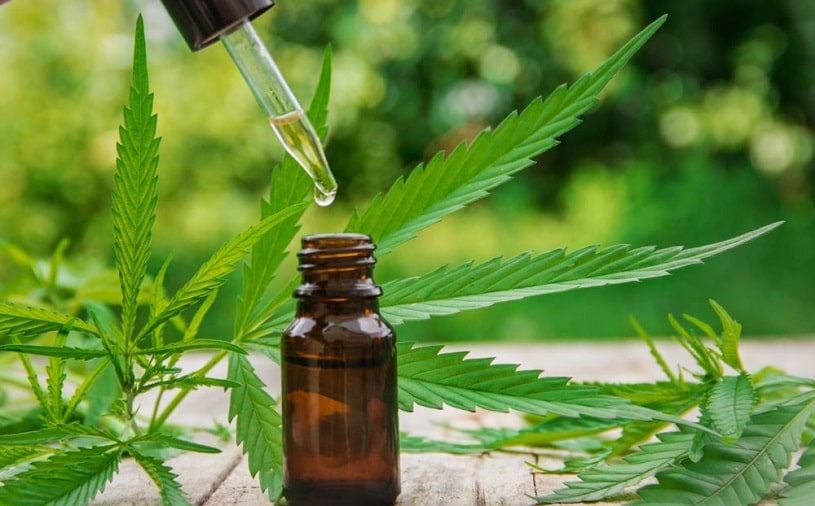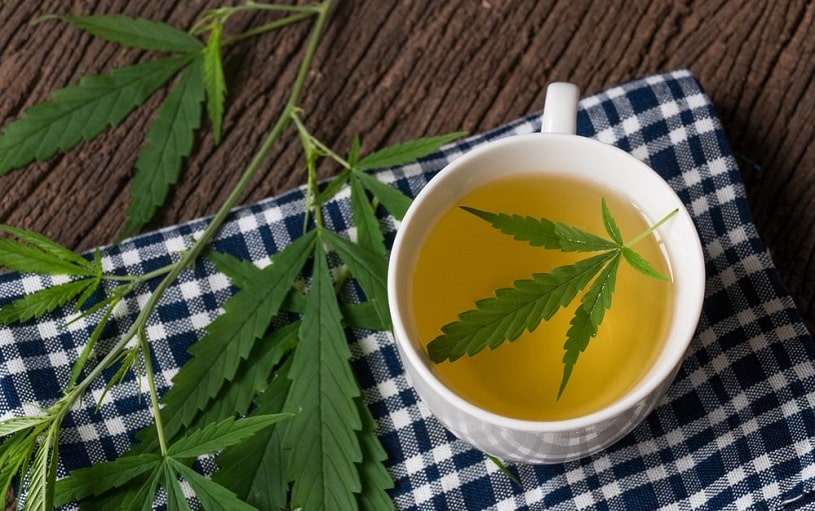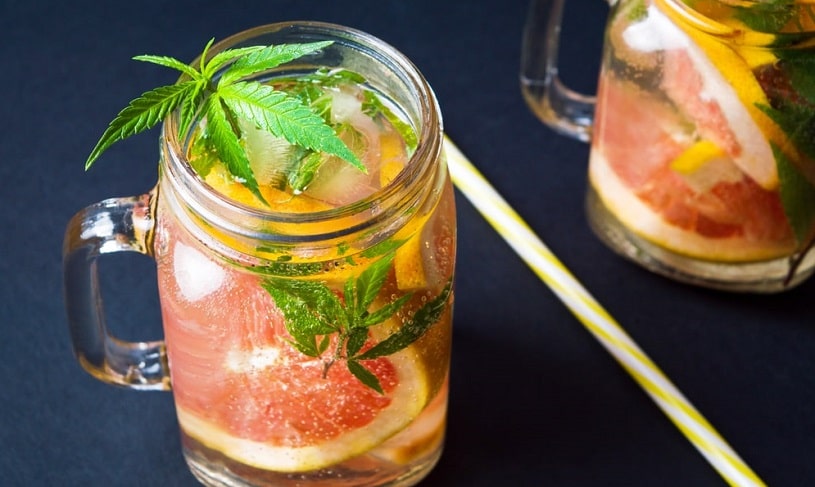As new research uncovers more benefits of marijuana, many states have legalized the medicinal use of cannabis. However, it has not been legalized nationally. While some people can use vaping, smoking, and other methods to try out marijuana, some people prefer the consumable options to get used to it. Among edible options, a liquid marijuana drink is very popular. A liquid marijuana drink can be alcoholic or non-alcoholic. There are several pros and cons, even some dangers of liquid marijuana, which should be considered before trying it out.
Table Of Contents:
Liquid Marijuana Drink Types
Although the history of marijuana use in the US dates back several decades, consuming the drug in liquid form has traditionally not been the most common way to use it. However, brewing a pot of weed tea is becoming increasingly popular. With the increasing popularity, the variety of liquid marijuana has increased significantly, ranging from marijuana coffee pods to weed-infused teas. A range of weed wine, sodas, and cocktails are available as well. It is worth noting that not all cannabis drinks are psychoactive.
Note that not all states legalize the recreational use of cannabis, and the use of this substance is still not approved on the national level.
The weed-infused drinks are also illegal in such states. It is also not advisable to follow any recipe unless consulted with a medical professional.
Here Are Some Of the Different Types Of Weed Drinks:
- Marijuana coffee: Cannabis and coffee can provide effects of energy, focus, and a creativity boost. The drink can be made by crushing weed and adding it to boiling water with coconut oil or butter. The weed-infused coffee is ready in 40-60 minutes and can be consumed hot or cold after straining
- Cannabis Tea: When the pot plant dried flowers are crushed with a marijuana grinder and brewed with water, the result is a less psychoactive drink because THC does not dissolve in water. On the other hand, a latte drink with a dairy product (full-fat milk or butter) is more likely to produce a high because THC is fat-soluble
- Cannabis Juice: Fresh raw cannabis is pressed like any other vegetable, and this juice can be mixed with some other vegetable juice (for example, carrot juice) to cut out the bitterness
- Marijuana Shot: Weed jello shots or shooters are a mix of candy, alcohol, and cannabis
- Marijuana Beer: It is beer-infused with CBD or THC. It is brewed with barley like traditional beer and infused with marijuana oil or CBD/THC oil. Some companies are experimenting with producing non-alcoholic marijuana-infused beer
- Cannabis Cocktail: Although the effects of mixing alcohol and cannabis are still being researched, the use of this mixture is quite common. Caution should be taken while using this mixture as there are some adverse effects reported for it
- Cannabis Soda: It's an alternative for those who are avoiding getting high. Some CBD-infused drinks do not contain THC and act as a beer substitute
- Cannabis Smoothies: These are smoothies of fruits or vegetables containing hemp seeds or CBD oil
- Weed Wine: CBD is mixed with wine using nanoemulsion to make this drink
- CBD Kombucha: A naturally carbonated drink made from tea. They have antioxidants and probiotics, which help in improving digestive and immune systems
What Is Cannabis Tincture?
Cannabis tincture is the extract of cannabis in a solvent. The solvent can be alcohol or a substitute (for a non-alcoholic tincture) such as glycerin. Alcohol is the most effective solvent as it displays the best binding to the compounds in cannabis.

Tinctures can also be made with alcohol, from which alcohol can be evaporated and substituted with glycerin. When cannabis flower or concentrate is left with alcohol for a few weeks with daily shaking the container, the compounds bind to alcohol. When this is strained to remove the plant material, it is called cannabis tincture. This can be taken as drops under the tongue or incorporated into drinks and food.
Benefits Of Cannabis Tinctures:
- Cannabis tincture has a long life if kept in a cool dark place, so it can be made in large batches and stored
- It is low calorie as compared to most edible options
- The onset of effect is longer, enabling users to make a better judgment on whether they should perform certain activities
Disadvantages:
- The ratio of cannabis to alcohol should be kept constant to keep the dosage the same
- It can sometimes give a burning sensation under the tongue
- More drops can cause adverse effects
Why Do People Use Liquid Marijuana?
There are many reasons why people prefer to use liquid marijuana. The pungent smell of cannabis combines well with the flavor of certain drinks such as coffee for an enhanced sensory experience. Some people prefer this method of use because it has no telltale smell. Others like the different taste or effect of drinks infused with pot.
When cannabis is consumed in liquid form, it takes longer to act (30-90 minutes) and produces a less intense but longer-lasting effect than vaporizing or smoking. Drinks laced with weed are often less potent than edibles such as brownies, candies, and other foods.
Here Are Some Of the Reasons People Use Liquid Marijuana:
- Some drinks like weed tea do not produce a high but provide all the health benefits of cannabis
- Weed drinks are not associated with some of the complications of smoking pot, such as asthma, bronchitis, and emphysema
- Drinks have a less dramatic and recognizable scent than raw cannabis
- The flavors of certain drinks, such as coffee, can mask the characteristic bitter taste of cannabis
Effects of Drinking Marijuana Tea
Liquids infused with weed produce a feeling of well-being and a slight buzz. They can act as painkillers and anti-inflammatories. They can provide relief for digestive symptoms such as nausea, cramps, and acid reflux. Some strains of weed produce a sedative effect, while others mimic stimulant drugs. So, liquids containing cannabis can help improve mood and alertness.
Depending on the method of consumption, the effect of pot can be immediate or delayed. Marijuana tinctures and drinks can take several hours to produce the effect as opposed to the almost immediate effect of smoking a joint. When a tincture is placed under the tongue, effects may manifest in 30-45 minutes and peak in about 90 minutes. When consumed as a drink, effects may take longer to manifest but last longer (up to 4 hours).

The effect of weed also depends on the THC level, which is the main psychoactive component. Drinks are typically less potent compared to weed-laced foods like brownies and cookies. Some cannabis-laced teas produce nothing more than a slight buzz. Consuming pot-infused drinks on an empty stomach can lead to symptoms such as stomach ache.
Sometimes exposure to heat or improper preparation of the weed tea recipe can make the psychoactive cannabinoids less effective, reducing the drink’s quality and strength. Adding butter or coconut oil to the weed and whisking the emulsion can increase the potency of a drink because THC dissolves in fat. CBD is anti-inflammatory, antioxidant, and potentially anticancer. Like alcohol, CBD reduces inhibitions in the brain, which produces a feeling of relaxation, calms nerves, and reduces anxiety. Alcohol and CBD have been reported to amplify each other’s effects if taken together, causing symptoms like sleepiness, sedation, and sudden mood swings. Combining high doses of CBD with high amounts of alcohol results in significant motor impairments and altered time perception. So drinks containing CBD can produce the same effects if paired with alcohol.
Health Benefits of Drinking Weed Tea
Cannabis tea has many therapeutic benefits. They produce milder effects and do not cause a heavy stoned sensation. The mild euphoria or buzz gives a sense of renewal to some individuals.
People Follow a Marijuana Tincture Recipe Or Brew Weed Coffee For Several Reasons, Including:
- Reduction of chronic pain
- Decrease in chemotherapy-induced nausea
- Boost in appetite
- Relief of mental anxiety and stress
- Benefit in autoimmune conditions such as multiple sclerosis, irritable bowel syndrome, and rheumatoid arthritis (further research is needed to confirm beneficial effects)
Is Juicing Marijuana Dangerous?
When marijuana is used as a vegetable and pressed to extract its compounds, the process is called juicing marijuana. Juiced marijuana has inactive forms of its active compounds. The psychoactive compounds do not get activated until the drug is heated, so when consumed in juiced form, it acts as an anti-inflammatory substance.

This is why consumed in this form, it is safer as compared to smoking or vaping cannabis. Compared to edibles, juices are a better way of consuming the drug as a juice contains all the components in liquid form and can be readily absorbed in the body. The human body can tolerate larger doses of marijuana in the juiced form, which helps with its medicinal properties and decreases the risk of an overdose on weed.
Weed Drinks: A Gentler, Healthier Alternative
Compared to traditional consumption methods such as smoking, eating, or dabbing weed, weed-infused drinks are a gentler, healthier choice. They protect against the risks of smoking and are a convenient method to harness the healing powers of the cannabis plant.
It is worth remembering, however, that weed is a potent drug, and prolonged or excessive use can have serious health consequences. To prevent the long-term repercussions of marijuana tinctures and drinks, it is important to seek therapy at a rehabilitation facility for drug users. Professional addiction treatment experts at these facilities can help develop a treatment plan for substance addiction and help pot users overcome a substance use disorder.
Page Sources
- Robert B. Mims, Joel H. Lee, Adverse Effects of Intravenous Cannabis Tea, https://www.ncbi.nlm.nih.gov/pmc/articles/PMC2536936/
- Hazekamp A, Bastola K, Rashidi H, Bender J, Verpoorte R. Cannabis tea revisited: A systematic evaluation of the cannabinoid composition of cannabis tea. Journal of Ethnopharmacology. 2007. https://www.sciencedirect.com/science/article/abs/pii/S0378874107002401
- Hazekamp A, Bastola K, Rashidi H, Bender J, Verpoorte R. Cannabis tea revisited: A systematic evaluation of the cannabinoid composition of cannabis tea. Journal of Ethnopharmacology. 2007. https://pubmed.ncbi.nlm.nih.gov/17604926/
- Peschel W. Quality control of traditional cannabis tinctures: pattern, markers, and stability. Scientia pharmaceutica. 2016. https://www.ncbi.nlm.nih.gov/pmc/articles/PMC5064247/
- Subbaraman, M.S. and Kerr, W.C., 2015. Simultaneous versus concurrent use of alcohol and cannabis in the National Alcohol Survey. Alcoholism: Clinical and Experimental Research, 39(5), pp.872-879. https://www.ncbi.nlm.nih.gov/pmc/articles/PMC4399000/
- Verhoeckx KC, Korthout HA, van Meeteren-Kreikamp AP, Ehlert KA, Wang M, van der Greef J, Rodenburg RJ, Witkamp RF. Unheated Cannabis sativa extracts and its major compound THC-acid have potential immuno-modulating properties not mediated by CB1 and CB2 receptor coupled pathways. International immunopharmacology. 2006. https://www.sciencedirect.com/science/article/pii/S1567576905002882

 Authored by
Authored by  Reviewed by
Reviewed by 
